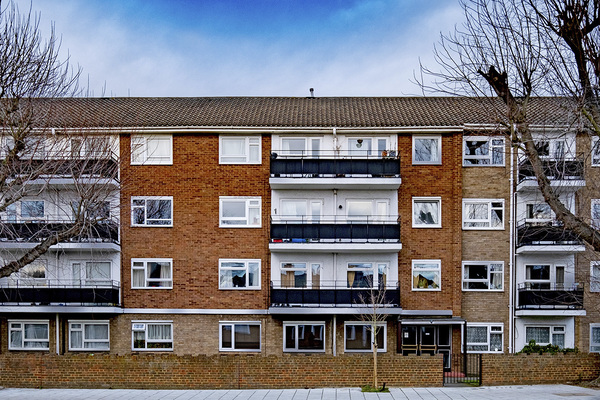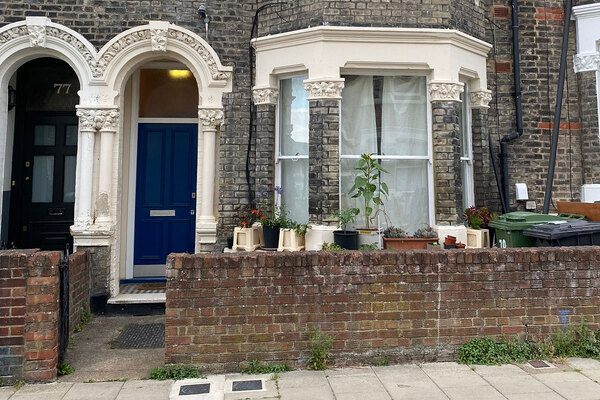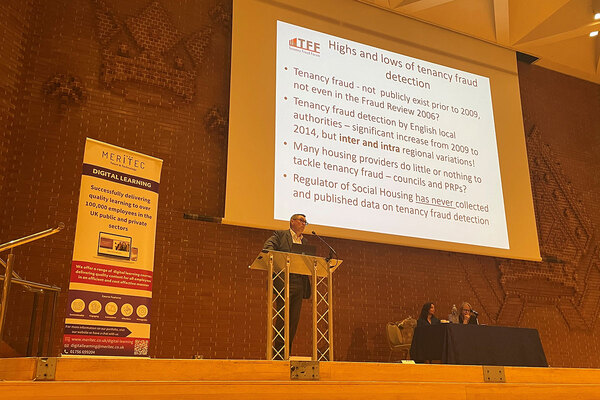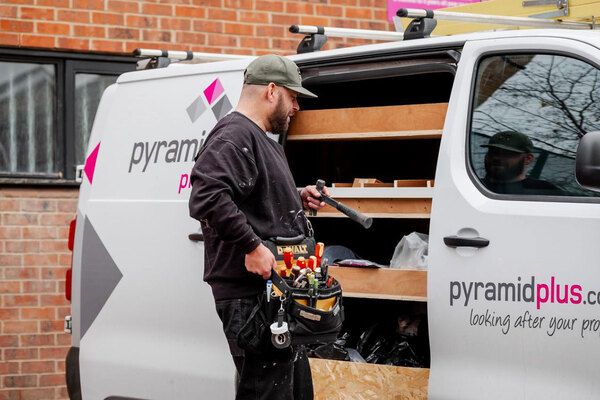You are viewing 1 of your 1 free articles

Wells Chomutare is managing director for south London at Peabody
Social housing fraud is costing you millions
Housing providers have to be proactive to tackle tenancy fraud, writes Wells Chomutare
Social housing tenancy fraud costs the taxpayer millions of pounds every year. With more than one million people on the waiting list for a social home and the current economic climate making building social homes challenging, it’s an issue all housing associations and councils need to tackle.
Research published earlier this year found that one in 20 social homes in London is subject to tenancy fraud. At Peabody, we’ve found that 15% of all succession applications – to inherit a tenancy once the tenant has passed away – are fraudulent.
Last year, Peabody alone saved taxpayers £2.5m by tackling social housing fraud. We’ve reclaimed more than £400,000 in illegal profits from subletters over the past 10 years.
We also recovered 60 homes last year that have since been let to people in genuine need. In Islington, our tenancy fraud team found that one tenant owned and lived in her own home, while illegally subletting her four-bedroom social home. We took her to court, were awarded possession of the property, and have since relet the home to a domestic abuse survivor and her three children.
Committing tenancy fraud isn’t a victimless crime. With every home that’s sublet illegally, and every tenancy obtained dishonestly, a person or family in need is deprived of a home. Housing providers – such as councils and housing associations – spend thousands to recover them. This money could be better invested in improving existing homes and building new ones to address the national housing shortage.
“At Peabody, we’ve found that 15% of all succession applications – to inherit a tenancy once the tenant has passed away – are fraudulent”
It’s estimated that more than 100,000 families are in temporary accommodation, and demand is on the rise. This crisis is far worse in the capital, costing London councils £50m each month to provide temporary accommodation for homeless Londoners.
It’s not just housing providers who pay the price. The average detected tenancy-fraud case costs the public purse £42,000 – a combination of temporary accommodation, legal and investigation, and subsequent empty-home costs once recovered.
So, how do we reduce social housing fraud and make sure much-needed social homes go to those truly in need?
Many housing associations rely on their housing officers to investigate housing fraud over and above their daily duties. But unlike most registered housing providers, we have an in-house specialist tenancy fraud team.
In our experience, housing providers with their own fraud teams tend to be more successful in identifying tenancy fraud and recovering homes. Our investigation officers are fully trained and hold all accredited professional counter-fraud qualifications. We also train and support other frontline colleagues to identify the signs of tenancy fraud.
Our fraud team works proactively, conducting anti-fraud checks day and night to identify and catch offenders in the act. We have a range of partnerships and data-sharing agreements, including with local-authority fraud teams, to help us prosecute serious cases of fraud under the Prevention of Social Housing Fraud Act 2013.
We’re harnessing technology that can help identify tenancy fraudsters. Alongside in-person visits, we check the records of credit reference agencies, land registry reports and other financial information to identify tenants who own properties or live elsewhere.
“With every home that’s sublet illegally, and every tenancy obtained dishonestly, a person or family in need is deprived of a home”
Despite our best efforts, we’re reliant on the criminal justice system to play its part in bringing offenders to justice. But when we face delays in getting court dates and arranging bailiff appointments, those in need of a social home stay on the housing waiting list even longer.
Since the pandemic, courts have struggled to get through the backlog of cases quickly enough and we wait, on average, three to five months for a court hearing. In some cases, we’ve waited almost a year. On top of that, obtaining a bailiff appointment can take another six to nine months.
Not only is the fraud then going undetected for longer, but it also delays our ability to quickly relet homes to those in genuine need.
Last week was International Fraud Awareness Week. The week was a stark, yet useful, reminder of the challenges posed by tenancy fraud and why we should all care about it.
We’re cracking down on these fraudsters, and our continued efforts with our partners mean we’re recovering more homes. We’re also calling on anyone who suspects a Peabody home is being sublet to contact us – anonymously if preferred. Details can be found on our website here.
Wells Chomutare, managing director for south London, Peabody











